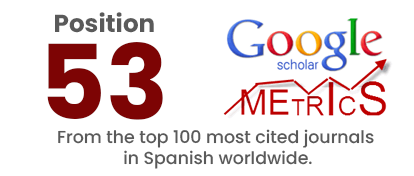The Image Of A Man In The English And Russian Paroemiological World Pictures
DOI:
https://doi.org/10.36097/rsan.v5i20.531Keywords:
paroemia, paroemiological world picture, gender stereotypes, gender marked proverbs, ethnocultural sAbstract
Paroemias constitute an extremely important language layer in the field of gender perspective investigation which helps identify various gender stereotypes of different peoples. This article is devoted to the gender issues in English and Russian paroemiological world pictures, images and assessments correlated to a man, and the semantic areas where they are most prevalent. The main methods of a research are common-language methods: method of scientific observation, comparative and contrastive method, descriptive method. Based on studies of English and Russian proverbs and sayings which reflect the gender stereotypes of the compared ethnic groups, the authors try to create man’s image in each socio-cultural environment and to reveal their common and specific characteristics. Analysis of empirical material allows drawing the following conclusion: portraits of the English and Russian men in the considered PWP differ considerably. One of the main components of an image of the English man is the set of the rules shown to him. For the English man except worthy behavior and inner world the large role is played by welfare and appearance.
Downloads
References
Anikin V. P. Russian proverbs and saying. – M.: Fiction, 1988 – p. 431.
Bryan G.B., Mieder W. Anglo-American Proverbs and Proverbial Phrases Found in Literary Sources of the Nineteenth and Twentieth Centuries. – New York: Peter Lang Publishing, 2005. – p. 870.
Bukovskaya M.V., Vyaltseva S.I., Dubyanskaya Z.I. The dictionary of common English proverbs. – the 2nd edition. – M.: Russian language, 1988. – p. 240.
Dahl V.I. Proverbs of the Russian people: in 3 t. – M.: Russian book, 1993. – 2 t. – p. 704.
Humboldt W. von. The chosen works on linguistics. – M.: Progress, 1984. – p. 396.
Khuzina E.S. Reprezentation of gender stereotypes in the Tatar language: abstract of diss.candidate of philological sciences: 10.02.02. – Kazan, 2012. – p. 24.
Khakimova G.Sh. A gender factor in the English paroemias in comparison to the Russian ones: diss. of candidate of philological sciences: 10.02.04, 10.02.20. – Ufa, 2003. – p. 248.
Mieder W. English Proverbs. – Stuttgart: Philipp Reclam, 2008. – 152 p.
Shaimardanova M.R., Akhmetova L.A., Garipova A.A., Nikishina S.R., Atamanova G.I. & Gatin R.G. The Representation of Women in English and Russian Paroemiological Pictures of the World. International Journal of Environmental & Science Education. – 2016, VOL. 11, NO. 18, P. 10851-10861.
Shaykhullin T.A. The Russian and the Arab paroemias with a component name of the related relations: conceptual and semantic and ethno-cultural aspects: abstract of diss. Dr.s philological sciences: 10.02.01, 10.02.20. – Kazan, 2012. – p. 48.
Speake J. Oxford Dictionary of Proverbs. – New York: Oxford University Press, 2008. – p. 388.
Snegirev I.M. Russian national proverbs and parables. – M.: Eksmo, 2010. – p. 576.
Zhukov V. P. Dictionary of the Russian proverbs and sayings. – 4 edition., additional – M.: Russian language, 1991. – p. 534.


















